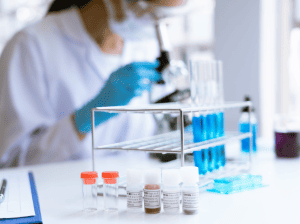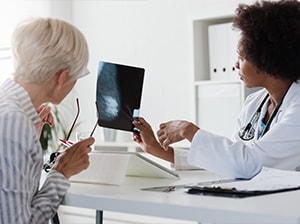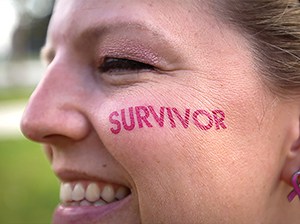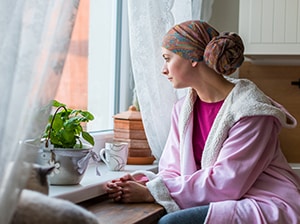About Breast Cancer
No matter who you are or where you live, breast cancer may touch your life. The About Breast Cancer section of this website has the latest evidence-based information on breast cancer risk factors, screening, diagnosis, treatment, metastatic breast cancer, survivorship and more.

Facts and Statistics
Learn the basics of breast cancer, including warning signs, statistics and information for women and men with breast cancer.

Breast Cancer Risk Factors
Learn about breast cancer risk factors, genetic counseling and genetic testing, options for people at higher risk and healthy lifestyle choices.

Diagnosing Breast Cancer
Learn about breast biopsies and understanding your breast cancer diagnosis, including information on your pathology report and factors that guide treatment and affect survival.

Treating Breast Cancer
Learn about the types of treatment for breast cancer, side effects, how to get high-quality care and other issues related to treatment, including the importance of clinical trials.

Tools and Resources
Find information about the Komen Patient Care Center as well as our interactive tools and educational resources in English and other languages.

What’s New in Breast Cancer
Read about select advances in breast cancer research and treatment, including new investigational treatments and drugs, cutting-edge technologies, and new approaches to care to improve patient outcomes.
The content found within the Facts & Statistics, Signs & Symptoms, Risk Factors & Risk Reduction, Screening & Early Detection, Diagnosis, Treatment, Metastatic Breast Cancer, Survivorship Topics, Support, and Financial Assistance & Insurance sections were co-developed with Harvard Medical School faculty and Dana-Farber/Harvard Cancer Center staff.
This content is regularly reviewed and reflects the current body of scientific knowledge on a topic. We look at the consistency of the research from large studies (done with people) reported in reputable, peer-reviewed journals. This content has been reviewed by an expert panel of researchers, practicing clinicians and patient advocates.
You can see the last updated date at the bottom of the left-hand side of the page.
Updated 09/25/23





